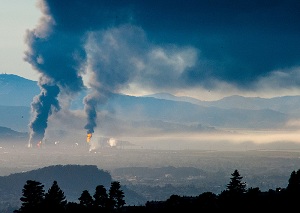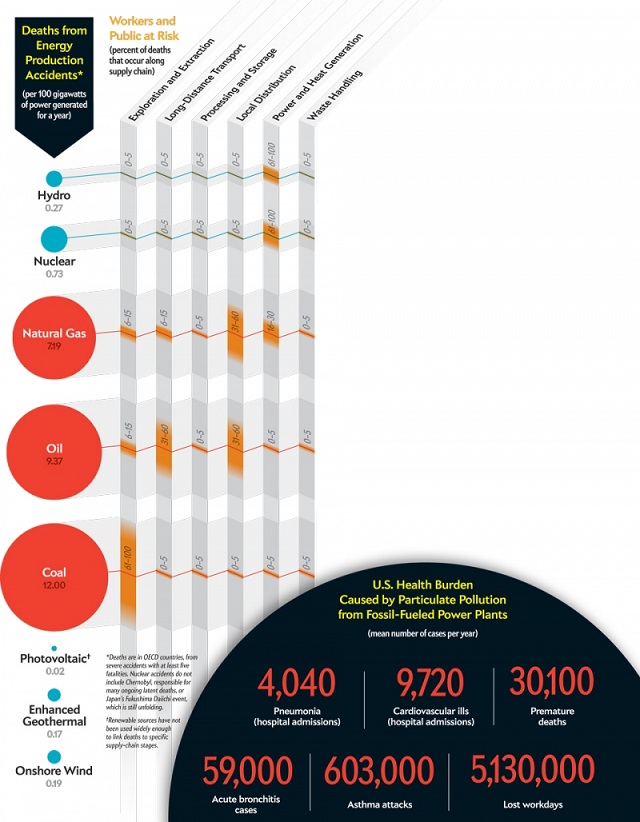The killer economics of fossil fuels
 On August 6th, the crude distillation unit Number 4 at Chevron’s Richmond, California, petroleum refinery exploded.
On August 6th, the crude distillation unit Number 4 at Chevron’s Richmond, California, petroleum refinery exploded.“If it seems like this sort of thing is always happening,” writes Michael Parks for Grist, “that’s because it is.”
Fossil fuel extraction and processing is inherently dangerous.
Despite increasing safety measures, 3,827 coal miners have died in the United States in accidents since 1968, according to the Center for American Progress.
“Natural gas and oil production have resulted in 892 and 77 deaths, respectively, in those years, as well as almost 14,000 injuries,” Parks adds.
What is spoken about less frequently are the direct health effects of our current energy system.
Scientific American came out with the mean number of annual cases of health burdens caused by “particulate pollution from fossil-fueled power plants” in the United States.
The numbers are grim: 30,100 premature deaths, 9,720 hospital treated cardiovascular ills, 4,040 hospital treated cases of pneumonia, 5,130, 000 lost workdays, and the list goes on.
If solid statistics were available from the developing world, this would look like chicken change.
“The real issue here, clearly, is that our current energy system produces major negative health effects even when things are going exactly as they should,” Parks writes.
Do the health costs of fossil fuel extraction and processing outweigh the economic benefits?
One recent study states the cost of pollution from coal exceeds the economic benefit of the electricity the coal produces.
Unsustainable energy systems aside, for the upwards of 500 people who went to the hospital with respiratory complaints after the Chevron oil explosion, the cost of energy is no longer a theoretical question.

You can return to the main Market News page, or press the Back button on your browser.

